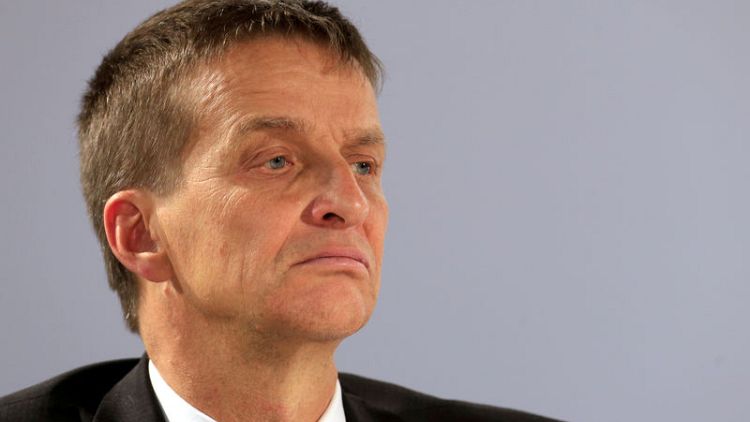NUSA DUA, Indonesia (Reuters) - The European Central Bank is in no rush to provide more clarity on how its easy monetary policy would be tightened, but it will move only very gradually, policymakers said on the sidelines of the IMF's annual meeting on Thursday.
The ECB has given guidance that asset purchases would end in December and interest rates would be held steady through next summer, but has avoided giving more detail, arguing that inflation developments would be factored in and policy was not simply on auto pilot.
"To be any more precise than that, to lock in a date, to tie our hands would be rather risky," Ardo Hansson, Estonia's central bank chief said as the annual meetings of the International Monetary Fund and World Bank began on the Indonesian island of Bali.
"When we get closer, we can have another discussion if we need to adjust the language again, but this is not a debate we are going to have just yet," Hansson said.
While most policymakers have argued that the wording implies no move before the end of the summer, Dutch policymaker Klaas Knot, an outspoken hawk, recently argued that the guidance was the midpoint of expectations and the actual move could be "to the left or the right of that point".
Some uncertainty over inflation may be blurring the outlook, as underlying price pressures remain weak despite accelerating wage growth and record employment, a somewhat puzzling outcome which suggests some invisible slack in the euro zone economy.
The ECB has undershot its medium term inflation target - currently set at close to but below 2 percent - for over five years and its projections show only a very gradual rise even after years of stimulus.
"Core inflation is still rather weak in the euro zone at around 1 percent, as it has been for the last couple of years, so an accommodative monetary policy is still needed in Europe," Finnish central bank chief Olli Rehn said in Bali.
But Rehn added that rebuilding some of the ECB's firepower before the next downturn was needed, even if unconventional policy tools will remain permanent part of its arsenal.
(Reporting By Francesco Canepa and Jan Strupczewski; Editing by Simon Cameron-Moore; Writing by Balazs Koranyi; Editing by Simon Cameron-Moore)



